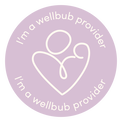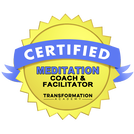AuthorJanel Briggs Categories
All
|
Back to Blog
Almost half of those said they worked nearly TWICE as many late hours than the previous year.
And the number of hours spent working overtime? For many it went from 236 hours to a staggering 436 hours in one year. No wonder we’re all so burnt out! In my own work, many women and clients I’ve spoken to said this year has felt like one big emotional hangover, which often leads to… burnout. And the similarities I’ve been noticing? Emotional exhaustion + mental load = burnout Emotional Exhaustion Emotional exhaustion is the most common experience of burnout women feel and that I’ve seen with my clients during the last year and half. Whether it’s total exhaustion from the weight of conflicting, overwhelming, and repetitive emotions or the prolonged feelings of exhaustion, frustration, fear, worry, loss, sadness, anger, resentment, and even guilt, we’ve all been feeling it. The constant changes and adaptations. The cycles of change with feelings of little control over our lives. They all take an emotional toll. They all lead to emotional exhaustion often followed by burnout. Carrying the Mental Load The mental load we carry is not often as obvious as emotional exhaustion. But you know all those thoughts constantly swirling in our minds? The processing, analysing, overthinking? The monkey chatter and second-guessing? The doubts and fears? Well, this is carrying (and often being consumed by) the mental load. The mental load of our thoughts, worries, fears, and the stress that come from these patterns of repetitive (and often negative) thoughts. Of future pacing and staying five steps ahead. And then there’s the over-analysing… Have I done enough? Is there more I should be doing? Something I should’ve done? Something I shouldn’t? The reality of carrying these constant thoughts and beliefs is that is becomes overbearing, overwhelming, and exhausting. The mental load wears us down and leads us to burn out. How could it not? Making Changes Even after we’ve recognised our emotional exhaustion and mental load and made some changes, we often still FEEL burnt out. Confusing right? See when we experience chronic stress these feelings can trigger negative thought, emotions, beliefs, and patterns which often triggers our bodies’ stress response. So even if you’ve eliminated or eased the stresses and know things have changed your body never actually got the memo that everything’s ok. It doesn’t know you’re in a good place. You’re out of lockdown. You’ve changed jobs. It doesn’t know you’re ok. It doesn’t know you’re safe. Essentially what this means is that removing the stress doesn’t fully move you through burnout. Instead it’s your behaviours. Your behaviours tell your body things have changed and it’s ok to relax. This is why when you think, “I’m over that now.”, and can’t work out why you still feel so exhausted it’s because you’ve made changes to your external environment but not your internal habits and behaviours. You need to signal your body that you ARE safe. The danger IS over. You need to allow your body to process through the emotions, because if you don’t, you’ll likely stay in an emotionally burnout state being triggered time and time again. But, nothing changes if nothing changes right? Here are three steps you can start today to release the emotional exhaustion and lighten the mental load that can lead to burnout.
Emotional exhaustion and carrying the mental load are real. And remember, there are strategies and practices to assist, and I’m always here to help whether through my YouTube channel, blogs, or programs.
0 Comments
read more
Your comment will be posted after it is approved.
Leave a Reply. |
|
Stay Connected
Subscribe and be the first to access new blog content news & updates. |

 RSS Feed
RSS Feed





